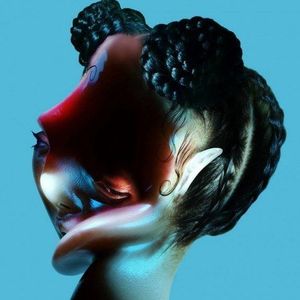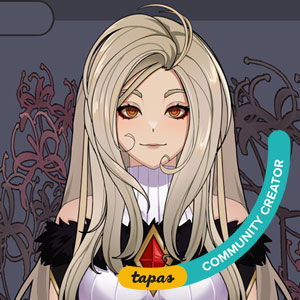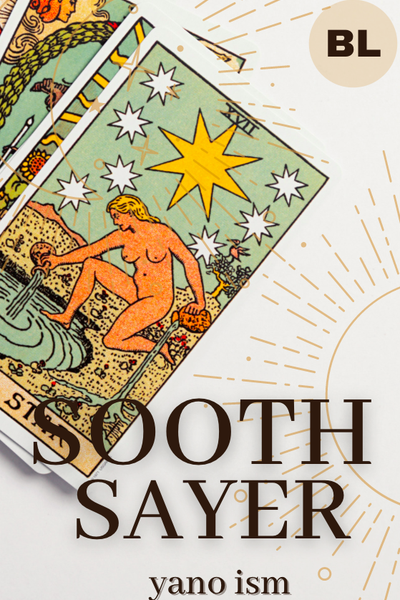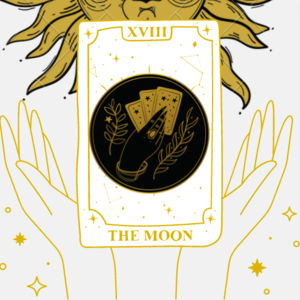This takes place in a future not far from now. You'll meet a boy, who's really a man but to you will be a boy for a little while longer.
He's someone you'll meet more than once, as is the way of living in a metropolis where budding friends meld and break apart like swarms of bees. Six degrees of separation will feel more like two as you run into each other while accompanied by people you'd never assume would look twice at each other in the street.
You'll meet at a fancy rooftop bar, at a random lunch spot, at a party in one of those gentrified neighbourhoods near the wharf. He'll remember you more often than you will him, or at least, you will make him believe it each time; watching as he gets flustered from having to explain once again how he's the guy whose drink you took off with that one time.
The second time he reminds you of this, you notice a few things. He's clearer somehow like someone's enhanced his simulation-avatar from 720 to 4K. He must be having a good day. There's less noise. Less shadowy substance billowing before his face. You notice his eyes aren't black or brown like you initially thought, but a muted shade of hazel. His chin is slightly indented and the planes of his face are softer and more delicate now that he's clean-shaven.
Golden Boy. It isn't the first time you've thought of him as such, but this time it'll stick, and however many times you lock eyes with him that evening, that's what will spring to mind: a corn-fed, all-American, Midwestern boy, even though you're in the UK. You wouldn't know what the equivalent would be on this side of the pond.
He looks athletic, not particularly agile, but strong, healthy. The glasses he typically wears threw you for a loop. That, or that he normally dresses like a crossover between a librarian and Indiana Jones, and he's not dressed like that that evening. Whatever it may be, something's different about him. You notice him in all the ways he's unusual, and where you've previously found yourself averse to the idea of someone who wears the mark of death, you convince yourself—if for a moment—he's just as alive as you are.
***
The real trouble begins after befriending Matilda. She's one of the Fanatics at the company. Always trying to have a Good Time and insists on cajoling half the town into her crazy schemes.
You both dance for a living, but there are levels to it at a company. There's the Legacies whose grandparents'—sometimes parents'—names are etched into golden placards on the studio doors and therefore feel entitled to every solo, and then, there's the Fanatics, and they're both insufferable for different reasons.
The Fanatics are the types who did Performing Arts in high school and made it their whole personality. They're insanely dedicated to everything but the craft itself, and the way they quiz you feels too much like they're trying to catch an imposter among their ranks. Catching their attention as a newcomer is like dancing with a dagger to your back, seeing as they've appointed themselves the judge and jury on what's kitsch, whose performance was a flop, who fucked their way to a solo, etc. Everything is so tightly enmeshed in company drama, ranks, and reputation that even if their cattiness is exposed for the school bullying that it is, at the end of the day, the Fanatics' are the ones that put the elite in these elitist institutions. Matilda is no exception.
You clock her from a mile away and readily accept her help navigating the other Fanatics. Unsurprisingly, this includes a lot of arse kissing. It's at one of these get-togethers you meet her friend, Foy. Matilda introduces her as "the American Dahl," which to your ears sounds like "American doll." You stand there unsure if you're supposed to join in on what's clearly a little inside joke.
Foy is an actor who's recently relocated to L.A. You'll come to know her well, something about the shape of her face (she is rather lovely) and how closely it resembles that of her brother quickly inures you to her. She and Matilda are from the same roster of socialites and have attended the same two performing art schools as all the other attendees at these gatherings. You can't quite say why they take to you the way they do. Benignly, you wonder if the reason they hang on to your every word is to turn around and regurgitate it at parties you'll never get invited to. This is of course something you'll think more often as Matilda starts dragging you across town to posher and posher places, but never with any real malice.
***
It's summer when you meet him on the rooftop bar, the boy that'll change everything. And it's during that same summer, with only a few more awkward encounters to bridge the gap, that you find yourself road tripping to a music festival with the three of them.
You learn there's a culture to this, to festivals in this part of the rainy world. You depart by train from the city having packed lightly: an extra pair of shorts, socks, and some tees; only to find yourself in an English country house, being berated by three baffled natives who've splayed the content of your rucksack on the living room settee wondering where the wellies and the insect spray are. You won't know a single performer from the line-up, but the way they've described Wilderness Festival is nothing short of Snow White's enchanted forest, complete with workshops and performances and a banquet. You recall the pictures Foy sent you of people bathing in the lake, their bodies streaked with paint and glitter. If it's anything like it's been advertised, it's worth getting it right the first time round. You swallow your protests in favour of the cloudless sky and pack Matilda's father's wellies and a woolly jumper.
There's a playlist playing in the car, some mix of punk and indie rock from a decade back that they seem to know by heart. Although you don't care for the music, you enjoy watching the ease of childhood friends getting back into the groove of their banter.
There's a distinct shift after Foy vacates the driver's seat at the first petrol stop. The volume hitches higher—a Bikini Kills song—and she demands the windows be rolled down. She inches her feet closer to her brother's seat, annoying him into submitting to the weight of her painted toenails as she reclines against the passenger door. Sunglasses perched on her head. A new song begins and she and Matilda start singing with Foy relegating every other line using her hand as a microphone and laughing each time her brother ignores her.
Peering at you from the gap between the door and the seat, she says, "Aww, you're making our choir boy shy." To him she says, "Show off that voice, how else will he know?"
His eyes, mortified, find yours in the rearview mirror. He's been doing this a lot intermittently and you don't catch on to what's going on until you tune in to Foy's smugness in their silent but heated exchanges. The moment is broken when she places her feet back on his thigh, twisting to face Matilda seated next to you. "What's that song called?" When Matilda doesn't answer, she makes a motion for you to nudge her. "Tilly, what's that Bon Iver song called that Sybil sang at our graduation?"
"Skinny Love."
Foy laughs and leans back into her seat, watching as her teasing colours his face.
Skinny love. A zing of surprise and pleasure makes you burst out laughing too. You would have never guessed. Not in a million years. Watching, or rather, actively looking out the window, but still watching the blush creep up his neck in your mind's eye, does stuff to your insides that takes you back to being seventeen again.
***












Comments (4)
See all